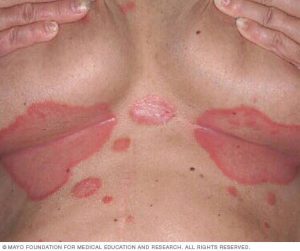There are two words that, when said together, can make any woman immediately cringe with discomfort: nipple pain. (You totally did it just now, didn’t you?)
For one, your nipples are super-sensitive (they’re a top erogenous zone, after all)-but there’s pain that feels good and pain that, well, feels like pain.
So, uh, what is going on when your nips actually hurt-and is it something to worry about?
First: Don’t freak out; there are various lifestyle and health changes that could lead to nipple pain, and most can easily be resolved once you figure out the culprit (i.e. throw away that ill-fitting sports bra forever), but others may come with more alarming symptoms (like nipple discharge, lumps, or changes in the color or texture of your breast skin) that are definitely a sign to see a doctor.
Whatever the case, irritated, painful nipples aren’t something you should have to deal with on the regular. If your nips are feeling super uncomfortable, make an appointment with your ob-gyn-one of these issues might be at the root.

1. You have an infection in your nipples.
Yep, your nipples can get infected: “There are large pores and hair follicles around the nipple that can become clogged and infected just like in your underarm or pubic areas,” says Jenna Sassie, M.D., an obstetrician-gynecologist at Women’s Healthcare Associates in Houston.
One possible type of infection, believe it or not, is a yeast infection on your nipple (yes, those yeast infections). These usually occur under the breast where sweat collects, says Sassie, but since yeast thrives in moist, dark environments, women who regularly wear bras made of non-breathable material might be prone to yeast infections on their nipples too.
Invest in anti-chafing balm such as Body Glide to reduce nipple irritation while running.
Thrush is another type of yeast infection that’s passed on to breastfeeding mothers from their babies. Luckily, these infections can be treated with antibiotics-for you, and if you’re breastfeeding, for your baby too.
Nipple piercing can also lead to infection, especially if it’s not done with good technique or cared for meticulously afterwards, says Alyssa Dweck, M.D., a gynecologist in Westchester, New York, and assistant clinical professor of obstetrics and gynecology at Mount Sinai School of Medicine. So if you’re considering accessorizing your girls, do your research and find a reputable tattoo and piercing parlor.






Discussion about this post